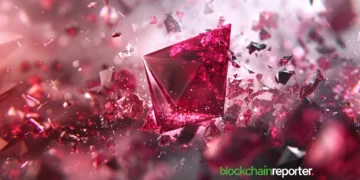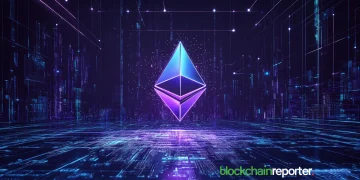Why are most NFT projects based on the Ethereum blockchain? If you deal with NFTs, that is, if you are an investor or a collector of NFTs, you should have definitely heard of Ethereum. And if you deal with Ethereum, you should have probably heard of NFTs. Because there is certainly no way you would have an NFT conversation without Ethereum chiming in. And because of that, you might have this question bothering you.
What Is The Relationship Between Ethereum And NFTs ?
You should know Ethereum is a blockchain network that processes and validates transactions on the Ethereum network. And as for NFTs, NFTs are digital assets that can be traded and stored on a blockchain, for these digital assets to be stored or traded it needs a blockchain network. That’s where Ethereum comes in, Ethereum is the blockchain network that most, not all, most NFTs are stored on and that validates and processes the transactions of an NFT.
Is Ethereum The Only Way To Buy An NFT?
In brief: NO. Ethereum is compatible with NFTs, Yes, thanks to the ERC-721 which was created as a standard token on the Ethereum network for NFTs. But Ethereum is not only the network you can use to buy NFTs there are others, such as Polygon, Solana, BNB Chain, and so on.
However, even with the fact that there are other chains or networks you can build or mint your NFT on, Ethereum is still the leading blockchain for NFTs, Ethereum dominates the NFT market intensely in terms of trading (buying and selling).
So why is that, why is Ethereum the leading blockchain network for NFTs, why is Ethereum (ETH) mentioned when NFTs are mentioned, why are NFTs mentioned when ETH is mentioned, and even…
Why Is Ethereum Used For NFTs?
Well, for starters, the Ethereum blockchain network paved the way for NFTs, and for that reason alone, NFTs sell for a whooping price on average. So creators tend to prefer and pick the Ethereum network over other networks, any day, any time. But there’s one problem though, which I will get back to in a bit.
So because Ethereum has a highly-secure network and data architecture, it makes more creators drawn to it, causing a large chunk of NFT projects running on the blockchain as ERC-721 token, and broad exposure to a large and growing market.
But the problem here is, because of the large volume of trading going on, on this network, and the high volume of network traffic, and because the Ethereum network can only support a few transactions per second (for now), it causes a substantial increase in transaction (gas) fees. In spite of those reasons, NFT creators have turned to other networks that seem to solve this problem, networks that support higher transactions per second, and lower gas fees. Such as Solana, Polygon, BNB chain, and some other blockchain networks. Speaking of that…
Which Blockchain Is Best For NFTs?
Although there are a lot of things that need to be considered when picking a blockchain to create your NFT, but the main stuff to look out for when choosing a blockchain to create and mint an NFT should be, ensure the validity of the blockchain smart contracts, check the blockchain security standards, the fees structure, transaction speed and assess the chances of forking.
The solidity of a blockchain’s smart contract is the key factor to the overall security of the distributed ledger. Smart contracts must go through a large-scale of testing to provide the highest level of dependability and efficiency, to ensure the minimal risk of breaches, downtime, and hacks.
That aside, NFT-based transactions require a cost-effective solution and it’s very crucial in determining the usage and adoption of non-fungible assets. Because of that, the cost layout of NFTs is an ideal thing to consider if feeless is the option in search for.
Hard forks can mostly break the elements of the term “non-fungible” because duplicating NFTs would surely call for the questioning of integrity. Thus, it is very important to design or create NFTs on a fork-resistant blockchain.
Also, the fact that Blockchains are immutable by design, and have faster finality means that an attacker will have fewer time frames to concede the digital ledgers. Therefore, any blockchain network that has that faster transaction finality while maintaining decentralization, might actually be a good one to consider for creating an NFT.
Conclusion
After all of these, the other things that might be needed to consider when choosing which is best for creating an NFT, depends on your goals, like why you want to create that NFT in the first place, your budget, and your investment objectives. If these questions are clear to you, you will just need to do more research, and compare other NFT blockchain networks before actually dipping your feet into creating an NFT.
FAQs
Is NFT the same as Ethereum?
NFTs are individual digital codes created using the same blockchain technology as cryptocurrencies like Ethereum (ETH) and Bitcoin (BTC). NFTs, on the other hand, are totally unique, which is their main difference. They serve the purpose of proving ownership of digital assets that may be purchased and sold with the aid of cryptocurrencies.
Does NFT work on Ethereum?
Anything built with Ethereum (ETH) is compatible with NFTs. Also, the most popular NFT marketplaces are powered on the Ethereum blockchain.























